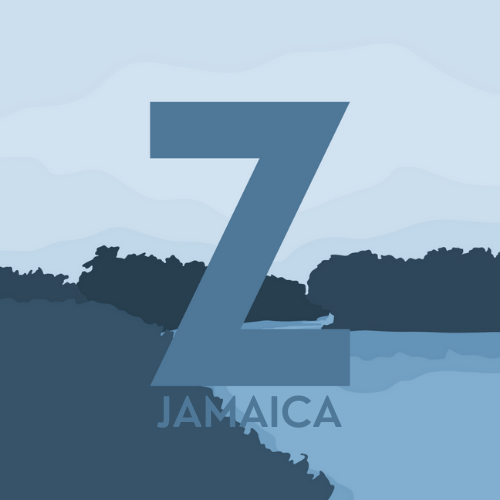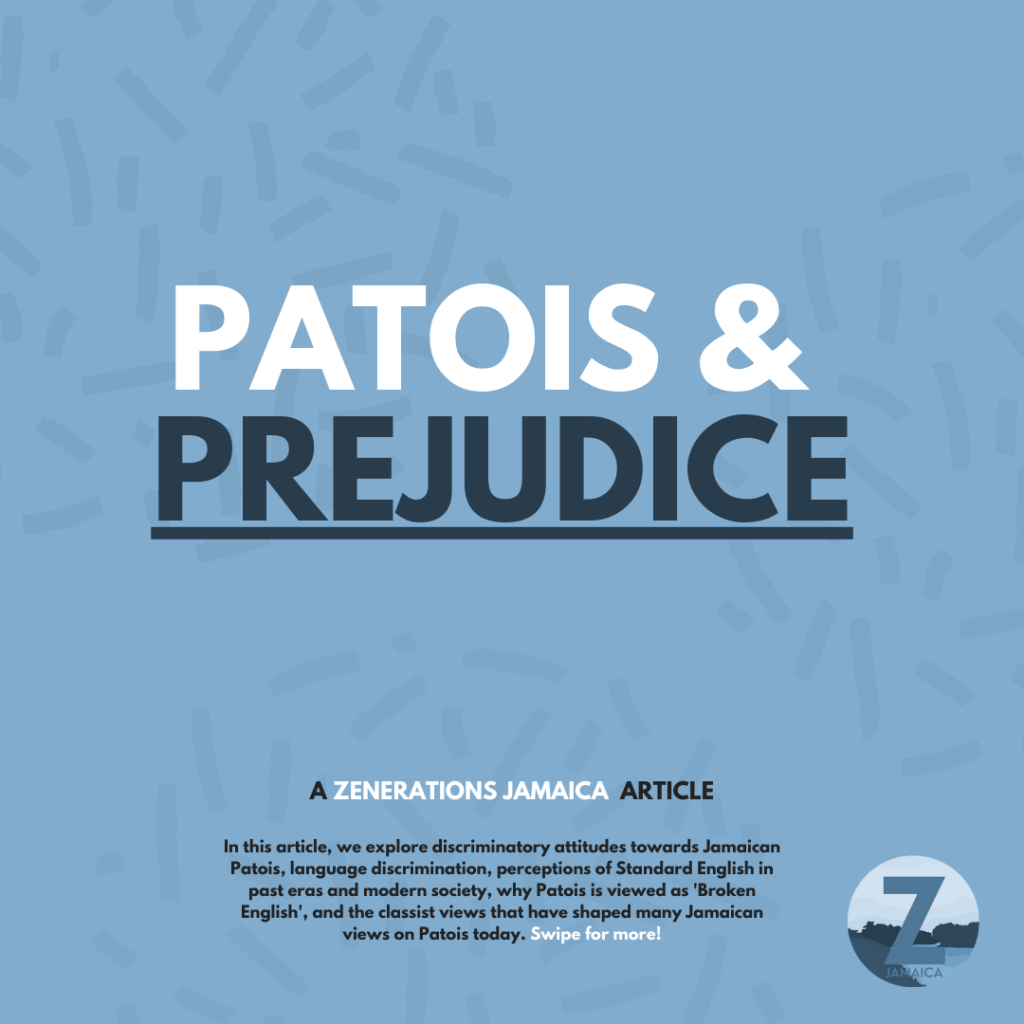by Levi (Destiny) Johnson | November 1, 2021
Patois: The Language of a People
Living as a Jamaican native, Patois (otherwise known as Patwa) is usually understood to be a common method of communication among other native speakers. So if it’s so common, then why is it so looked down on?
History of Patois
Most history in the Caribbean leads back to colonization, and the history of Patois is no exception. To take it back roughly 3-4 centuries, the enslaved Africans were forcefully taken to the Caribbean to work on plantations by the Europeans of that time. These Africans came from all tribes from different areas of the continent and were mixed with each other on the various Caribbean islands—some namely Jamaica, Trinidad and Tobago, and Barbados. With this mixture, the African people had difficulty communicating with and understanding one another; and in addition, the Europeans forbade them from speaking their own languages and forced them to learn and solely speak English.
They feared that them speaking their own languages would lead the enslaved people to potentially rise up against them and fight back against the injustice taking place. The enslaved Africans spoke English that wasn’t perfect (speculated to be intentionally and unintentionally), and as such the mixture of African language and English became common, and so it was on all the other Caribbean islands. As an act of rebellion, some Africans made it a task to speak an incomplete form of English, mixed with their own native tongues as an act of rebellion against the oppression.
As time went by, this unofficial and mixed dialect known as Patwa in Jamaica—and Patois to the rest of the Caribbean—became somewhat uniformed, and acquired its own rules, words, phrases, and meanings—as well as borrowed words from other languages such as Spanish, French, Arawak, and a few others. Over time, the dialect became known all across Jamaica and soon enough, it was being spoken nationwide. It became known as its own dialect and adopted its own identity outside of just being seen as an “inferior” language. It also helped to give Jamaicans a sense of identity and togetherness.
A dialect or a language?
In reference to the Oxford Languages dictionary, a dialect is a particular form of a language that is peculiar to a specific region or social group, and a language is a system of communication used by a particular country or community. Sounds the same right? However, a language has more word structure,
In its earlier years, Patois (Patwa) began as a dialect as it was solely spoken and understood by the enslaved Africans—making up the lower social class—with who it began. This common ground between English and African tongues was just enough to appease the English-speaking plantation owners as well as allow the Africans to hold onto some of their linguistic roots.
Today, Patwa is spoken by people hailing from all social groups, races, countries, and regions. One might even come across someone of non-Caribbean descent in the Netherlands who knows and speaks their fair share of Patois. With the above definition of dialect in mind, the Patwa we know today is no longer solely particular to a specific region or social group.
Patois Perspective in Jamaica
In Jamaica, there is a great and usually unspoken debate as to whether Patwa should be considered a language, dialect, or nothing but “speaking bad” with native and diasporic Patois speakers on any side.
The general atmosphere surrounding Patois is usually negative. In Jamaica, Patwa started out as a common tongue among the enslaved people, the lower class members of society, and with the years that link between Patois and the lower class has held strong. This link is one of many that causes Patois to be looked down on, as it is currently mostly still spoken by lower-class society members, who are often regarded as “illiterate” or “ill-mannered” though that usually might not be the case. These members of society, when their use of Patwa is displayed, are mostly portrayed in society as being “ghetto” or “rowdy” in behavior, which further adds to the negative perpetuation of Patwa.
This negative perpetuation also leads to persons—mostly from the lower class—being discriminated against. Take day-drinking as an example, it’s less problematic depending on the societal class you hail from; the upper class can drink wine all day and be regarded as fancy or elegant, while persons from the middle and lower class walk the thin line between being labeled elegant and an alcoholic. This perspective is the same with Patwa; if you’re from the lower-middle or lower class, speaking Patois is seen as your “confession” to being illiterate, ill-mannered or unprofessional, whereas persons from the upper-middle and upper class are praised or cheered on for speaking Patwa.
Now you might be wondering who is doing all the judging or cheering. Well, it’s everyone though it differs based on class perspective and scenario. For the naysayers on Patwa in regards to the lower class stereotypes, well everyone contributes or has contributed to that, and shockingly, this negative view is mostly held by the lower class. The cheerleading of upper-middle and upper-class society members is also mostly contributed to or carried on by members who exist on the lower end of the class spectrum. Isn’t that ironic? One end is being spoken down to, and the other is being praised for their efforts. A truly double-edged being wielded by the very same group.


Leave a comment